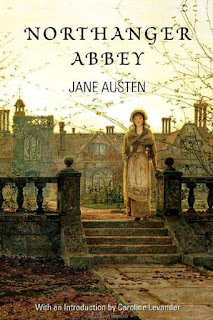In continuation of my exploration of Jane Austen's work, I recently read Emma (1815) and Northanger Abbey (1817), as well as A Memoir of Jane Austen (1870) written by her nephew J.E. Austen-Leigh
As Emma was nearing publication, Austen confessed in a letter that she feared "to those readers who have preferred 'Pride and Prejudice' it will appear inferior in wit, and to those who have preferred 'Mansfield Park' inferior in good sense". It's true that not a lot really happens in the story - but as with other Austen novels, its appeal lies in the witty dialogue, deft character descriptions and studied description of the life of English gentry at the turn of the 19th century.
Austen supposedly thought that no one besides herself would much care for the character of Emma - a spoiled girl who over-estimates her abilities and talents. But Emma is all the more engaging for her flaws and much of the humor in the book comes at her expense.
Northanger Abbey was the first of Austen's novels submitted for publication (in 1803) - but the publisher reconsidered after further review of the manuscript and the book languished in a drawer for the next 14 years. After Austen's death in 1817, her brother bought it back from the publisher - who had no idea that the manuscript was written by the author who by then had become fairly well-known for four other novels.
The book was then published, but it is generally considered to be Austen's weakest work since it did not benefit from the extensive revisions and improvements which she made to her other books. Still, it has a liveliness to it that the other more polished books do not. In several places the author directly addresses the reader and offers her opinions on contemporary novels and other subjects. You get a sense of Austen as a budding novelist in this work - and can also see how her style improved with her other works.
Though the Memoir is quite reserved - the family was always very guarded and close-lipped about their famous authoress and almost all of her letters were burnt - it was interesting to learn a bit more about Jane Austen. For example, she felt very attached to her characters, especially her heroines, and they continued to live in her imagination and in the stories she would tell her many nephews and nieces. For example, from their memories, we learn that the letters placed by Frank Churchill before Jane Fairfax (something mentioned in the novel, but not revealed there) contained the word 'pardon'.
I'm quite enjoying my foray in the world of Jane Austen - and to add to the fun, after finishing each novel I watch at least one its film adaptions. The BBC had a mini-series for each book - and there are other films, including ones like Clueless (loosely based on Emma).


